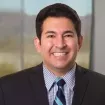- within Technology, Food, Drugs, Healthcare, Life Sciences and Cannabis & Hemp topic(s)
On October 7, 2025, the Supreme Court heard oral arguments in Chiles v. Salazar, a case that tests the extent of First Amendment protections for regulated professionals. After a divided Tenth Circuit panel rejected a challenge to Colorado's so-called Minor Conversion Therapy Law (MCTL), C.R.S. §§ 12-245-101, 12-245-202, the Court is now positioned to decide "whether a law that censors certain conversations between counselors and their clients based on the viewpoints expressed regulates conduct or violates the Free Speech Clause."
Colorado's MCTL forbids licensed mental health counselors from conducting "conversion therapy," a practice that purports to change an individual's sexual orientation, gender identity, gender expression, or feelings of same-sex attraction. Petitioner Kaley Chiles, a Colorado-licensed professional counselor and practicing Christian, treats minors who seek counseling related to same-sex attraction and gender identity. She filed a pre-enforcement suit to enjoin the MCTL, arguing that the law violates the Free Speech and Free Exercise of Religion Clauses of the First Amendment because it prevents her from counseling clients about "unwanted sexual attraction, behaviors, or identity." The district court found Chiles had standing to sue but denied injunctive relief, and Chiles appealed to the Tenth Circuit.
Affirming the district court in a split decision that spans 124 pages, the Tenth Circuit panel majority reasoned that, while Chiles had standing to sue, her claims were not likely to succeed. The panel majority held that the MCTL survives at least rational basis review because it regulates "the practice of conversion therapy—not the discussion of the subject by the mental health provider." Citing National Institute of Family & Life Advocates v. Becerra, 585 U.S. 755 (2018) (NIFLA), as the controlling precedent, the panel majority concluded that the MCTL imposes an incidental and constitutionally permissible burden on speech. Likewise, it determined that Chiles's Free Exercise claim was not likely to succeed because the MCTL is neutral and generally applicable, imposing only an incidental burden on religion. The Supreme Court granted certiorari to resolve the dispute.
At oral argument, Chiles maintained that the MCTL constitutes an unconstitutional, viewpoint-based restriction on speech that is subject to—and cannot survive—strict scrutiny. Colorado countered that the MCTL would survive even under strict scrutiny because it serves the compelling governmental interest of protecting minors from harmful or coercive treatment practices. The Justices' questioning centered largely on the issues of standing and free-speech classification. Although both lower courts found for Chiles on standing, the matter drew scrutiny from the bench. Justice Sotomayor noted that Colorado had not enforced the MCTL for nearly six years, while Justice Alito asked why it would be insufficient for standing that the statute prohibits conduct that Chiles wishes to undertake.
As for the merits, Justices Kagan and Barrett explored contrasting implications of regulating speech within professional practice. Justice Kagan posited that the Constitution would not bar a state from sanctioning a doctor who advised a patient to "lower cholesterol by eating dessert for every meal." Justice Barrett, by contrast, questioned how medical malpractice law—which can restrict provider speech as part of the care rendered—could function if the Court were to rule in Chiles's favor. Two members of the Court, Justices Thomas and Alito, appeared sympathetic to Chiles's arguments and suggested that the MCTL is subject to strict scrutiny, with Justice Alito describing Colorado's law as "blatant viewpoint discrimination."
Across the bench, the questioning revealed a shared concern about where to draw the constitutional line between professional regulation and protected speech. Several members of the Court, including Justices Kagan and Barrett, expressed concern that applying strict scrutiny too broadly could destabilize state licensing and malpractice regimes, while others, such as Justices Thomas and Alito, viewed the law as impermissibly censoring ideas disfavored by the state. This tension—whether the MCTL regulates conduct or expression—emerged as the argument's defining theme. Even procedural questions about standing reflected that same divide: how much real-world chill or nonenforcement is enough to implicate free-speech protections.
This case is one of the first post-NIFLA challenges to test the boundary between professional regulation and protected speech. The Court's forthcoming decision, expected by the end of the term, may clarify when speech by licensed professionals is considered incidental to conduct and when it warrants First Amendment protection—an issue with broad implications for physicians, therapists, and other regulated practitioners nationwide. If the Justices' questioning is any indication, the Court appears deeply divided but unified in its search for a workable standard that protects professional autonomy without constitutionalizing every form of state regulation. Accordingly, we suspect the Court will reverse the Tenth Circuit's decision, aligning itself with the free-speech views of the dissenting circuit judge.
The Court's decision is expected later this term. Stay tuned for Dykema's decision alert discussing the Court's forthcoming opinion.
The content of this article is intended to provide a general guide to the subject matter. Specialist advice should be sought about your specific circumstances.





